The GMCA is a joint authority of ten Greater Manchester councils, including Bolton, Bury, Manchester, Oldham, Rochdale, Salford, Stockport, Tameside and Trafford.
In a report written by Sarah Mellor, head of sustainable consumption and production at the GMCA, she warned that the fashion industry continues to “rapidly grow”, causing “significant environmental impacts”.
A waste compositional analysis in 2018/19 showed that textile waste formed approximately 5% of residual waste, the report said, and this is thought to be growing.
Analysis
To tackle the issue, the GMCA will carry out a textile waste composition analysis and a textile material flow mapping exercise. The former is set to give an understanding of the types and quantities of textile materials that are still being disposed of in the household residual bin.
The latter will aim to understand the flows of textiles in and out of the city region and quantify them. It is also set to help identify where there may be barriers or losses in the system and where intervention may be required to overcome these. The report added this step is essential as there is “currently no data on this available”.
Additionally, a circular economy roadmap is to be developed in 2023/24. It aims to explore opportunities to maximise textile circular economy business models such as more use per user and product as well as moving “beyond physical product” towards digital garments, for example for use on social media or to try on before purchase.
Plan
The textile waste compositional analysis forms part of the authority’s sustainable consumption and production plan. The plan, which is part of the GMCA 5-year environment plan, identifies actions to reduce waste and carbon emissions.
Collection
The document outlined that while not currently collected at the kerbside in any of the ten Greater Manchester local authorities, textiles are accepted at bring banks, charity shops or household waste recycling centres. GMCA’s facilities, managed by Suez, accept clothing, paired shoes, handbags, hats, belts and household textiles such as duvet covers, pillowcases, blankets, bedsheets, towels and lightweight curtains.
The report explained that Suez has a contract with SWD for processing.
[updated 1 November 2022]





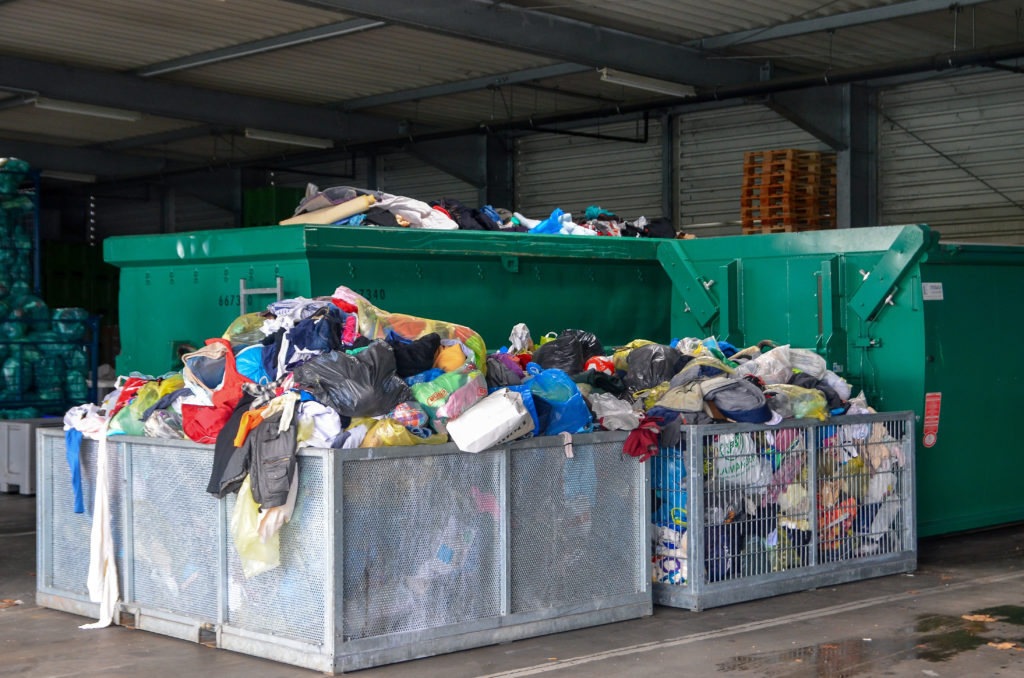
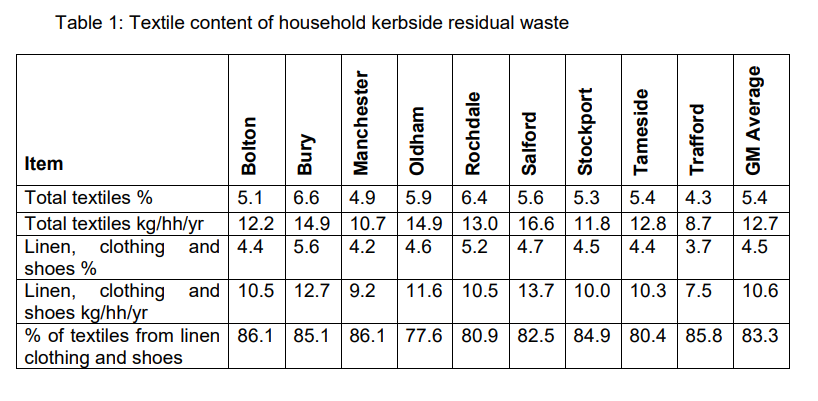
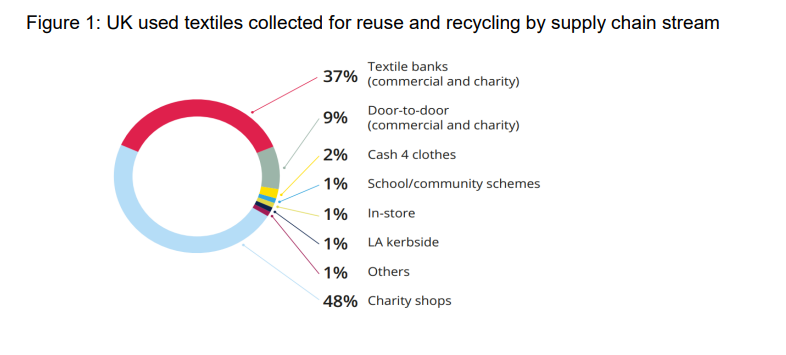


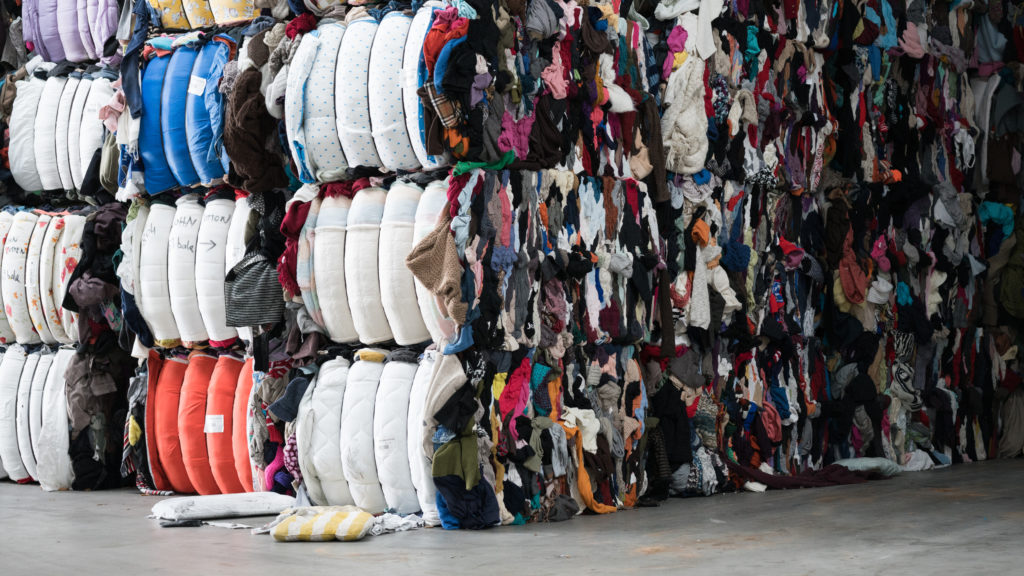
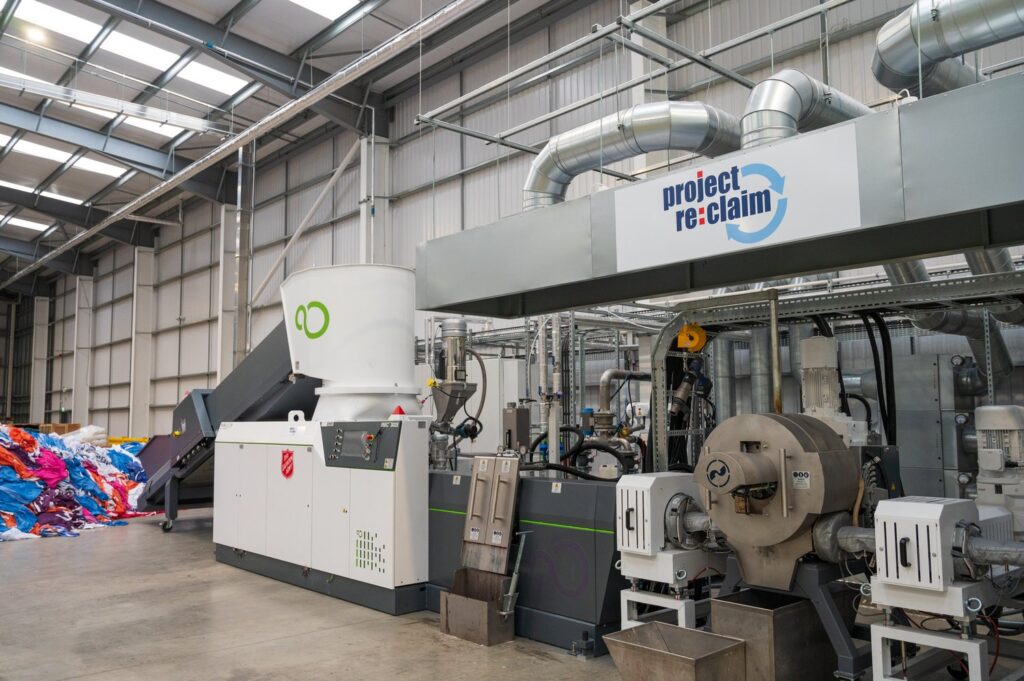


Subscribe for free